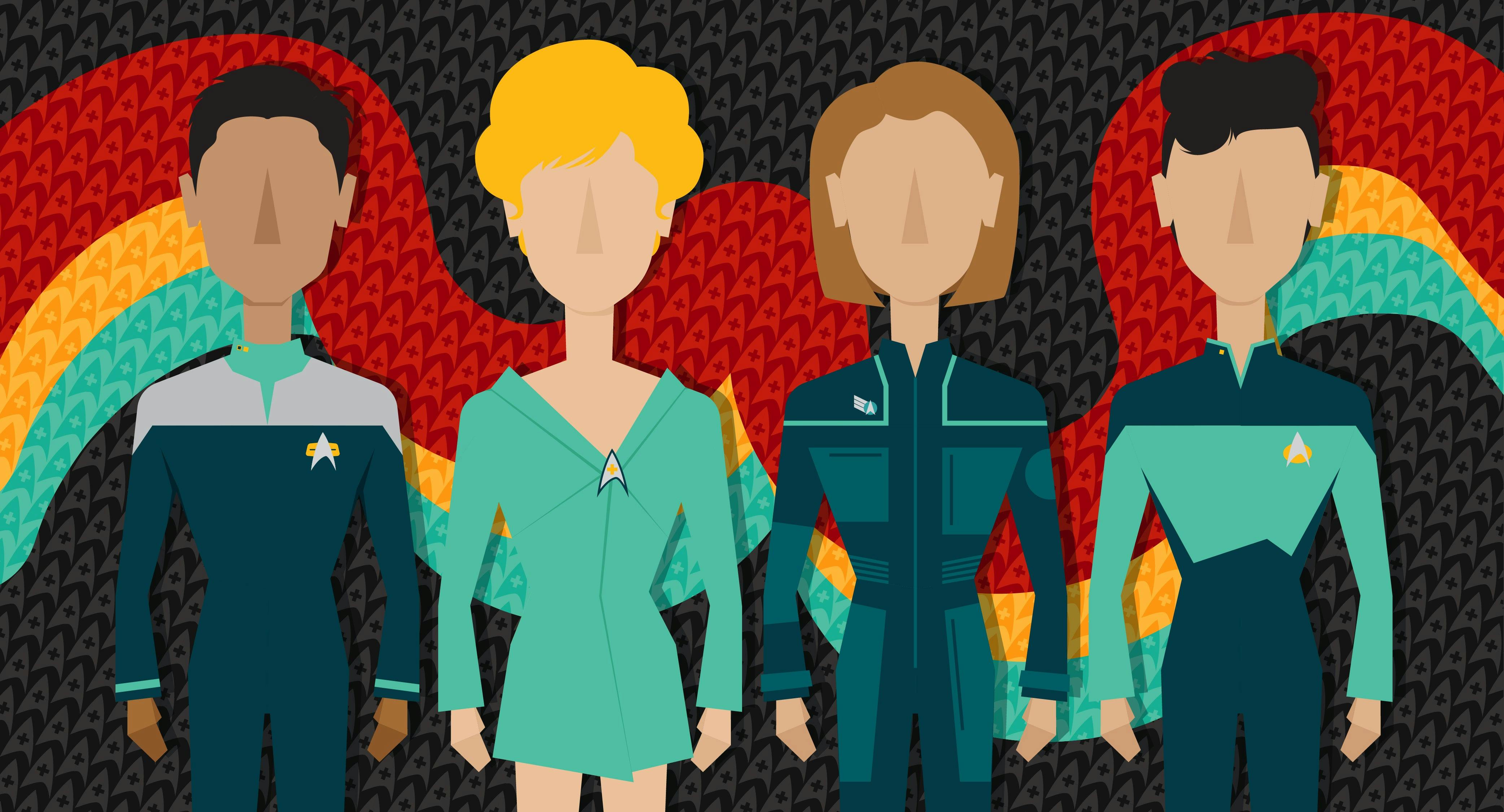Published Aug 18, 2021
The Essential Workers Of Star Trek Show Some Things Never Change
"The Federation may not have money, but in the real world, don’t forget to tip."
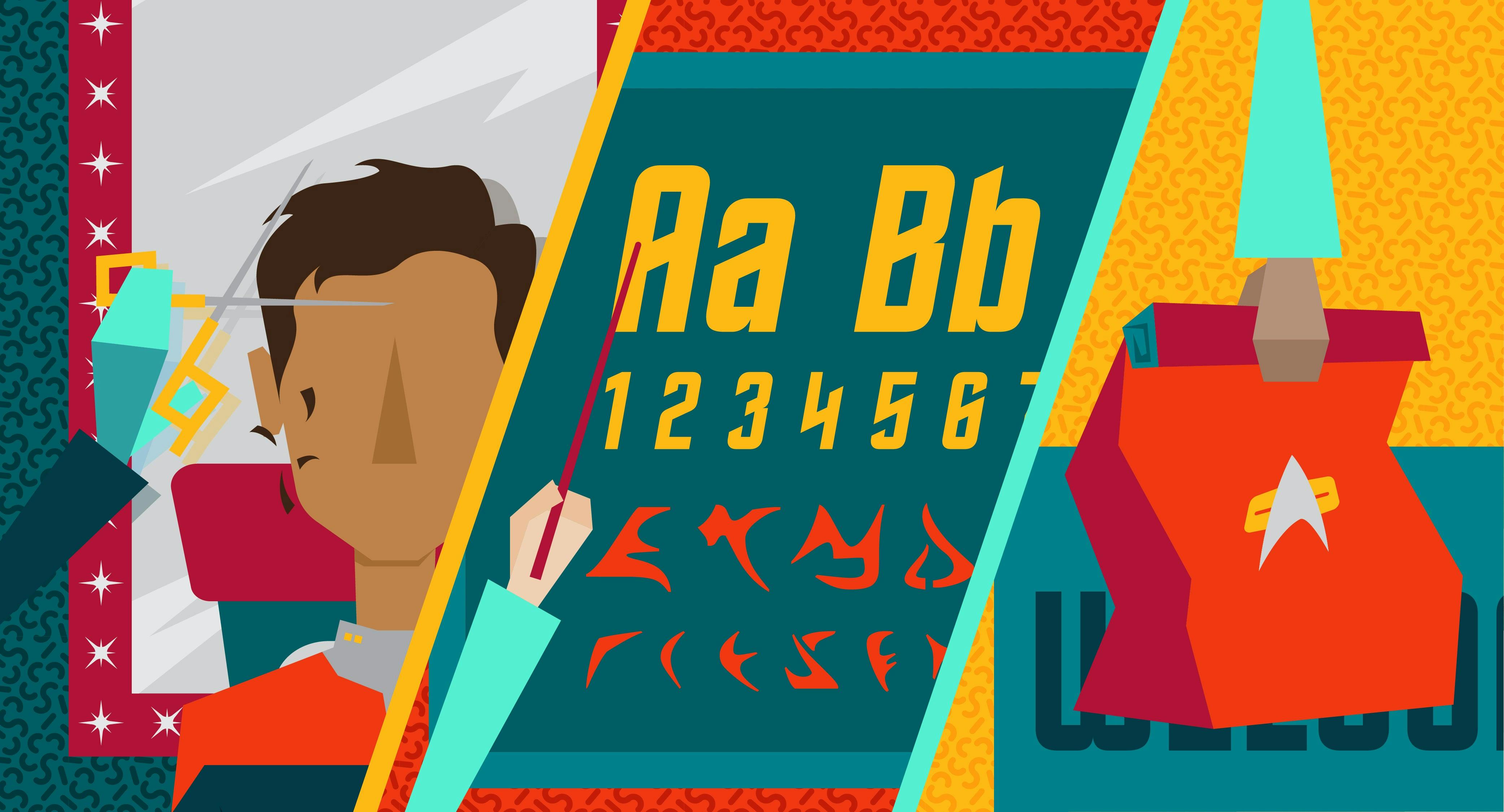
StarTrek.com
Language is constantly evolving; every year, hundreds of new words and phrases are added both to official dictionaries and to our casual cultural lexicon. This was even more true in the past year, where game-changing headlines and new concepts seemed to be getting birthed at a tribble-pace that overwhelmed anyone who tried to keep up.
One term, however, rose above the din of slang like “maskhole” and government-sanctioned terminology like “socially-distanced” to truly change the way we look at the world: “essential worker.”
In a year where many people, if they could, retreated to their homes, some jobs revealed themselves as irreplaceable, necessary, and - importantly - only possible to do in-person. Some essential workers brought us our food, whether through delivery apps or by keeping shelves stocked as grocery stores ran out of odd staples like SPAM and toilet paper. Others made themselves known through their absence, as the year’s isolation revealed dozens of horrible homebrew haircuts on social media. Others still changed virtually everything about how they did their jobs, as teachers adopted a plethora of high-tech solutions to keep our kids educated and occupied during quarantine.
Ironically, Star Trek knew that these jobs were essential long before 2020. Even as Trek envisioned a future that was higher-tech, more-automated, and more-streamlined than our own present, they acknowledged that some things demanded that personal touch. Some jobs, no matter how advanced, would always be done by people - and those people would encounter many of the same problems they do today.
So here’s to the unsung heroes of the saucer section, the essential workers of Star Trek’s glorious future, and the challenges they’ve faced:
Servers In Star Trek: Is A Comm Badge A Piece Of Flair?
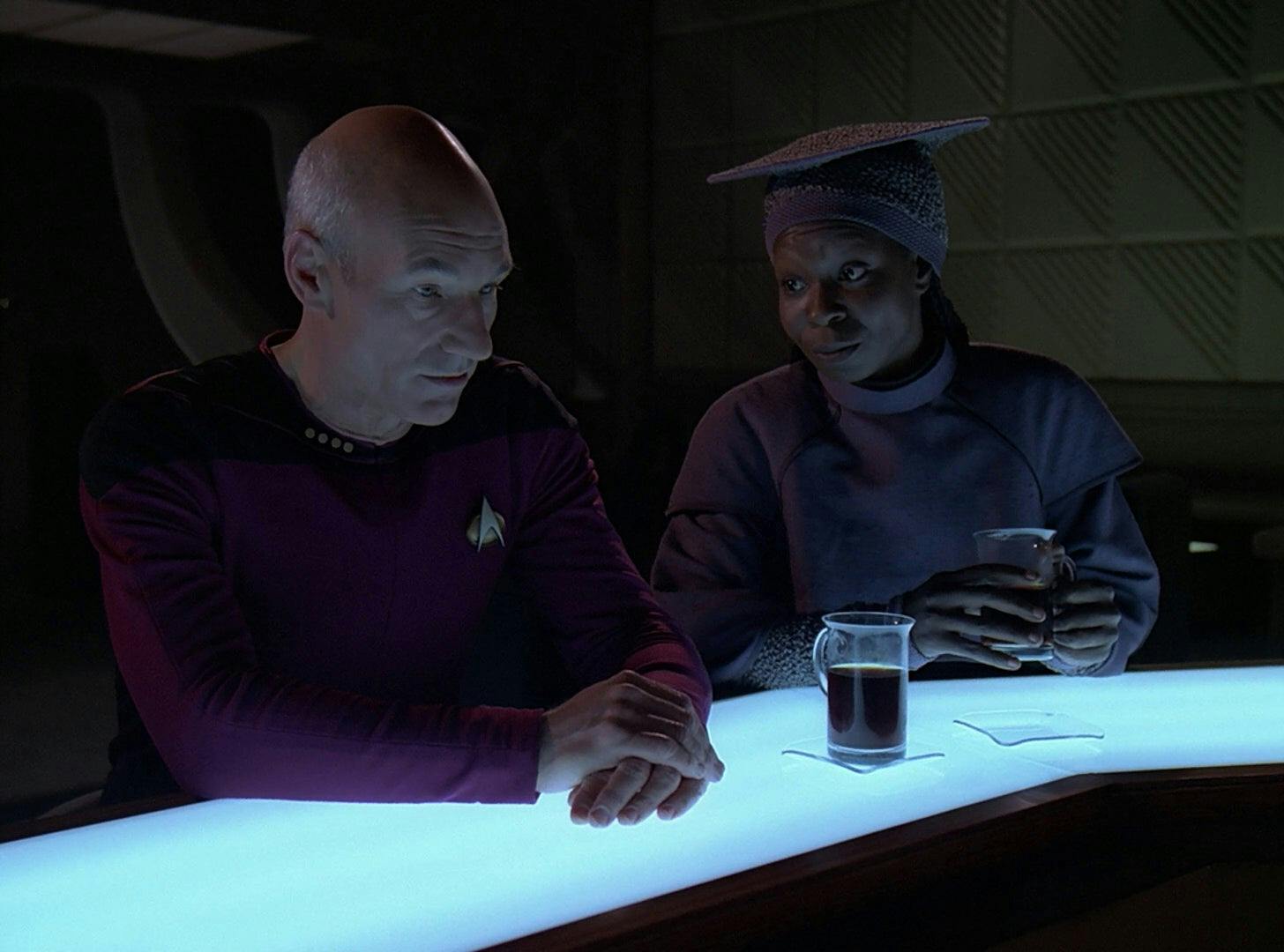
StarTrek.com
Everyone in Star Trek has a borderline-magical device in their homes that can make meals almost-instantly, with all the nutritional value you’d need to keep going. In the real world, we have something similar: a microwave. Characters on Trek often treat the replicator the way we treat our microwaves: it’s fine in a pinch, but it’s missing something. The crew would much rather congregate in Ten Forward, where the drinks are handmade, the bartender listens to your problems, and you can look at something other than the four drab walls of your apartment quarters for a little while.
Once the dining-out experience was robbed from us during the pandemic, it crystallized for many people what an important function that time away from home was serving. Socialization, a change of scenery, different food - all of them are super-important for maintaining one’s mental health in a time of crisis. And since “times of crisis” are like one of the top three reasons the Enterprise is out there (the other two being “boldly going” and “seeking Jamaharon”), it makes sense that a restaurant was a critical addition to the Galaxy class of starships.
But those times of crisis don’t only impact the Starfleet personnel. The Enterprise-D, as a vessel of diplomacy and exploration, has a crew filled with civilians, and threats as varied as a de-evolutionary virus or Borg assault don’t distinguish between the bold crimson of a Command division uniform and the embarrassing teal checker pattern of a Ten Forward busboy.
Here on Earth, the same has been true: viruses don’t distinguish between the green scrubs of an ICU nurse and the black apron of someone pulling a lunch shift. Moreover, the places where people congregate in large numbers like restaurants and nightclubs have proven to be hotbeds of disease transmission. Servers, bartenders, and line cooks have been some of the hardest-hit during the pandemic, particularly because the low pay and lack of health insurance endemic to the profession has left them more vulnerable to the aftermath of a hospital stint.
Employees of Ten Forward don’t get paid, just like everybody else in the Federation. But to put it another way, they get paid the same as Captain Picard does. When a virus ravages the crew of the Enterprise, they’ll get as much time off as they need to recover. And when Doctor Crusher presents them with a hypospray to cure their ailments, she doesn’t also try to present a bill for several thousand dollars.
Instead, the essential workers of the Enterprise-D are treated as truly essential, as important to the mission as an engineer or a botanist. Their service and venue keep the crew relaxed and mentally healthy between missions, and Guinan has probably saved the ship at least as often as Wesley.
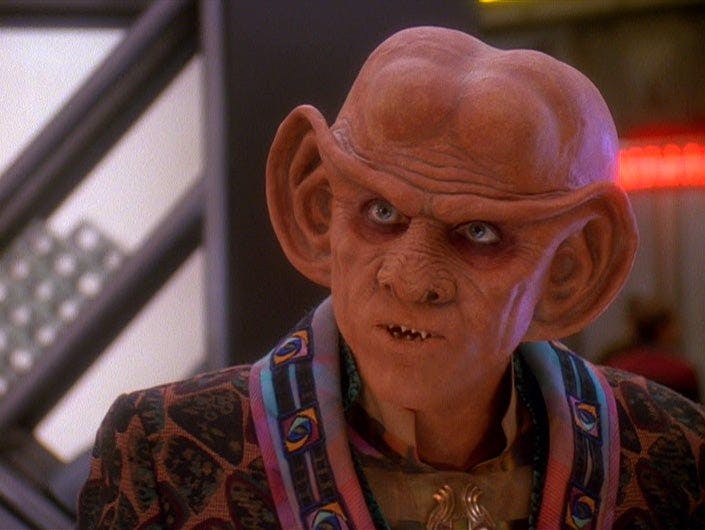
StarTrek.com
The flipside of that particular coin is Quark’s Bar, where the employees are underpaid and working for tips - which basically makes Ferenginar “Space America” as far as treatment of employees goes. But the similarities don’t stop there — when the population of Deep Space Nine was knocked out of commission by a replicated aphasia virus, Quark actually uttered the phrase “essential” when referring to his bar, flouting the stay-at-home order to continue serving guests from the tainted replicators that caused the problem in the first place. So, kudos, DS9 writers, for calling that one.
Quark’s parallels to the present day don’t end with his callous disregard for public health guidelines, however. Now that businesses are beginning to reopen, many are facing a labor shortage making it difficult to keep the lights on.
Some claim it’s because the government’s current unemployment benefits are making a return to work unattractive. The other prevailing argument, however, is one that the employees of Quarks would no doubt find convincing: that many of the establishments reopening aren’t giving pay and benefits commensurate with the difficulty, stress, and occasional danger of the essential worker. The employees of Quark’s Bar walked off the site and refused to return until their demands were met. Whether that’s what we’re seeing here remains to be seen, but either way, Quark stands in wonderfully for some of the worst bosses we saw operating during the pandemic.
Deep Space Nine also gave us another prominent restaurant, Sisko’s Creole Kitchen, and with it, another surprisingly-apt metaphor for the crises facing essential workers lately.
Sisko’s father was earthbound, and his restaurant based in New Orleans, so he didn’t have to deal with the hazards that can befall the crew of a Starfleet vessel or space station, whether it’s an alien attack, replicated virus, or random Tuvixings. He did, however, fall victim to something else facing our 21st-century counterparts - dealing with security crackdowns and attempted overthrows of democracy. When fears of Changeling infiltrators swept Earth, security checkpoints were set up all over the planet - so that Sisko’s dad had to pass through many of them as he went about his business. Here in the 21st century, essential workers around Washington DC had to carry paperwork showing their status as essential so that they could pass through the checkpoints and cordons set up around town as they made their way to work. Neither weather, nor disease, or insurrection against a democratically-elected government can keep an essential worker’s boss from reminding them they’re on the schedule for today.
Stylists: Garak Versus The Space Karens
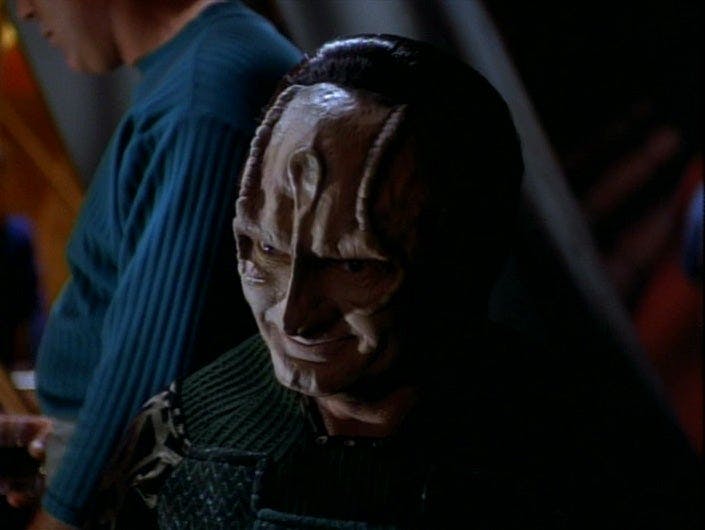
StarTrek.com
One of the amenities of the Enterprise-D is a fully-stocked barbershop, run by a cheerful Bolian named Mot. It would seem, at first glance, like an unnecessary amenity - after all, if you can program a hologram that can perform surgery, you should be able to program one that trims hair - but there’s more to it than that. Barbershops have long been social places, neighborhood fixtures where your stylist catches you up on the local gossip while getting your hair just the way you like it. Even folks who’ve emerged from home pandemic haircuts with their dignity intact miss getting the job done by professionals.
Moreover, something most holograms aren’t great at is expressing opinions. You don’t go to get a suit from Garak because you can’t get one replicated - you go to Garak because he won’t hold back in telling you that material isn’t working for you. Much like replicators and holograms, many of us tried to fill the voids in our wardrobes by shopping online, with incredibly hit-or-miss results. Ultimately, nothing compares to a pleasant interaction with a knowledgeable salesperson.
Teachers: Putting School On The Main Viewer
Star Trek: Deep Space Nine | Keiko O'Brien Finds Her Purpose
The teachers aboard the Enterprise-D, much like our real educators, just want to help children learn. But as in life, the outsider world keeps intruding upon the order teachers are trying to impose, and the safe learning environment they’re trying to create. It’s long been a debate as to whether it’s safe to bring children aboard a starship, but in many ways, they’re no more dangerous than the difficulties real students and teachers face here on Earth.
Schools are often hotspots for outbreaks, since it’s a single spot where hundreds of households send a member to breathe the same air with other people. Chicken pox, whooping cough, the flu — schools carry germs, and kids aren’t great at practicing the care and cleanliness needed to stem the tide. Star Trek often conveniently fails to mention what’s happening to the children aboard the Enterprise when a newly-discovered disease leaps from Lt. Barclay to the rest of the crew, but it’s safe to say it jumps from kid to kid even faster than it jumps between adults, as 24th-century kids are probably just as likely to stick toys in their mouths as their 21st-century counterparts.
As teachers and students alike are returning to schools in the real world, they’re also returning to the grim reality of active-shooter drills. Aboard the Enterprise, one assumes, teachers have to endure something similar: they’ve never shown it, but the kids must go somewhere every time Riker yells “Shields up, Red Alert.” And it’s probably just as stressful and traumatic for them as it is for kids in the real world.
When Keiko O’Brien tried her hand at teaching, meanwhile, she encountered something else that a lot of real-world educators face: parents disagreeing with the curriculum. In Keiko’s case, teaching a neutral stance on the “wormhole aliens” angered the more-religious parents of Bajoran children. In 2021, the disagreement has been of a more-visceral variety: groups attempting to intervene in the way teachers discuss racism past and present. Movements have begun specifically to prohibit teachers from discussing certain topics, like “critical race theory” and the “1619 Project.”
As with haircuts and tailoring and food, educating children is clearly something that could, theoretically, be done by a hologram. But holograms can be reprogrammed at a whim; only a flesh-and-blood teacher can advocate for their students’ educational needs in the face of resistance, the way Keiko did and the way our own teachers are today.
Your Dilithium Is Taking Longer Than Expected
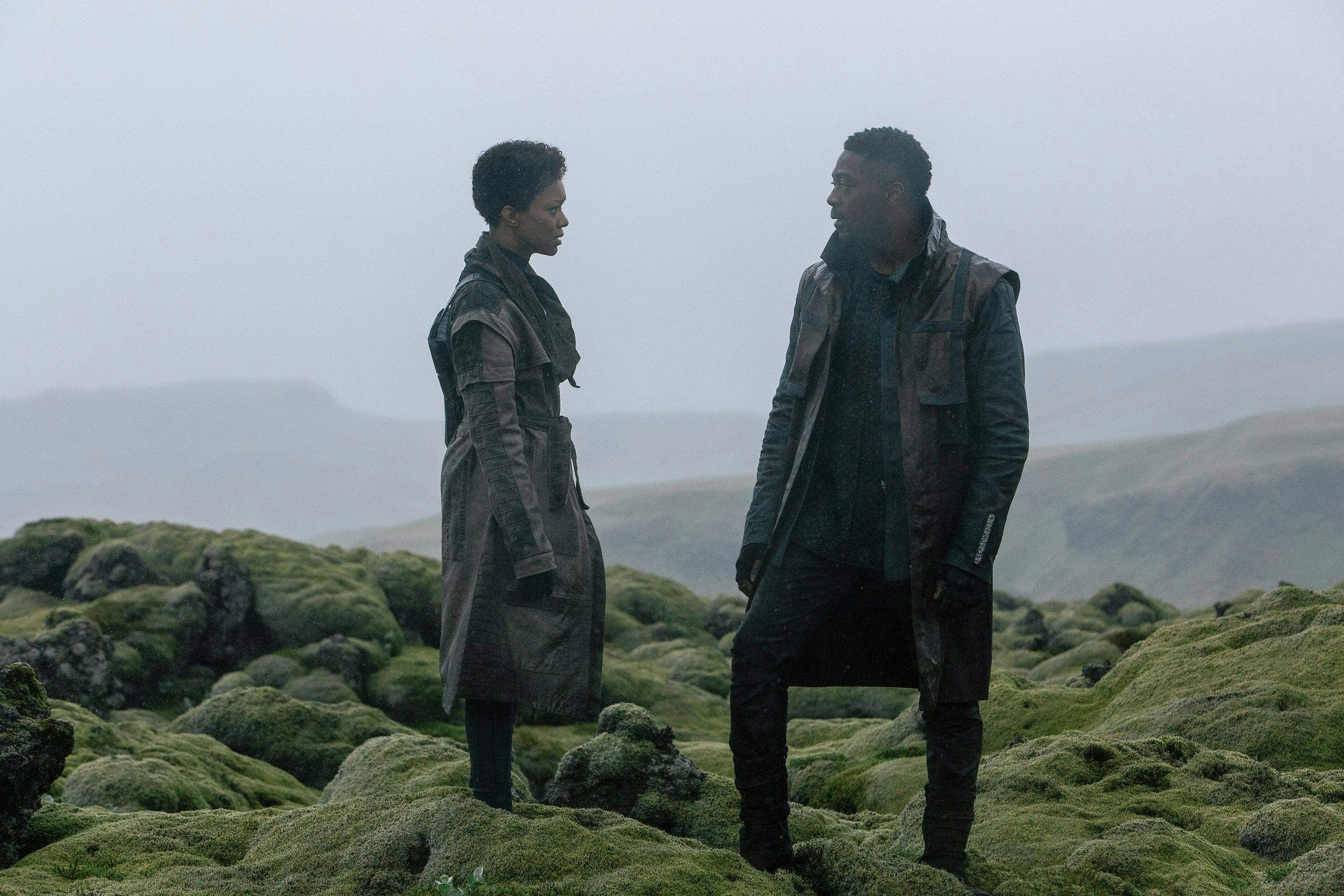
StarTrek.com
In the far-flung future of Star Trek: Discovery’s Season 3, the Federation has had to make a strategic retreat to try and regroup and survive, leaving a power vacuum that has been filled by one of the most pernicious enemies Star Trek has ever faced: the gig economy.
With dilithium almost gone from the Milky Way, everyone is trapped at home...er, on their home planets. Which means that supplies, medicines, entertainment, are all being delivered by a loosely affiliated guild of couriers, AKA “UberEats In Space.”
Much like the gig-economy delivery drivers in our own world, the drivers themselves aren’t paid or treated particularly well, operating on thin margins and dealing with surprising dangers, with the money they earn constantly dinged by the costs of maintaining their own vehicles. Folks stuck at home can’t complain about the service, either, because they need what the couriers bring and don’t have other options.
Luckily, with the help of the crew of the U.S.S. Discovery, the Federation is going to be able to provide lightning-fast (mushroom-fast?) service to the galaxy once more.
Essential workers form the backbone of Star Trek, from the folks who keep the crew of the Enterprise fed and happy to the drivers navigating transwarp conduits to keep entire planets alive. We should be grateful to these characters for their service - and equally grateful to their real-world counterparts making our lives tolerable today.
And important to remember: the Federation may not have money, but in the real world, don’t forget to tip.

